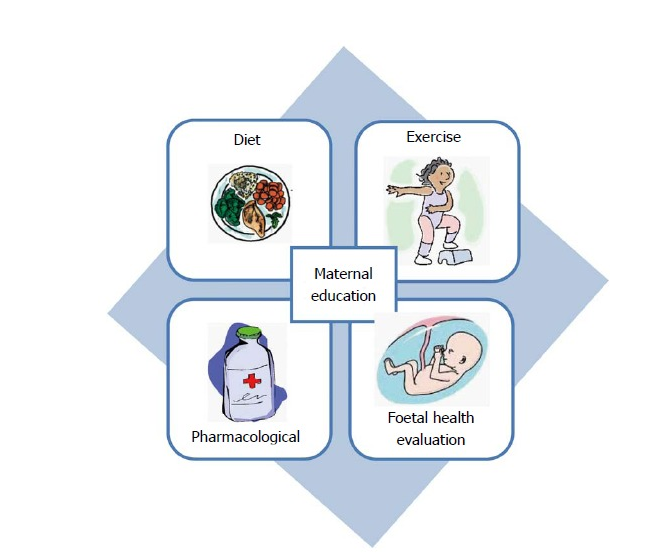|
It is recommended that women with Gestational Diabetes Mellitus (GDM) should undertake both aerobic and resistance exercise at a moderate intensity, a minimum of three times a week for 30-60 min each time, but what type of exercise should you be doing and how does it help you and your baby?? The main goals of the management of GDM are to reduce hyperglycemia (high blood glucose levels) and therefore reduce the side effects of having high blood glucose levels. Management may include medication, dietary support and exercise. From Padayachee C, Coombes JS. Exercise is a powerful tool to assist in keeping blood glucose levels within the optimal range. However, some women avoid exercise during pregnancy as they are unsure of the benefits, or are worried about the risks of exercise to them and their unborn child. The good news is that exercise, when prescribed appropriately, is both safe and beneficial for women with GDM, and is an integral part of the overall treatment for GDM. How Does Exercise Help My GDM? When you have GDM your blood glucose levels are higher than normal. Exercise can help to reduce your blood glucose in two ways:
Through the methods listed above, exercise has been shown to be beneficial for women with GDM by reducing or delaying the need for insulin as a treatment for GDM. Improved blood glucose levels during pregnancy are also important, as high blood glucose levels increase the risk of poor health outcomes for both mum and bub, and ladies are also at increased risk of developing type 2 diabetes later in life. Other benefits of exercise during pregnancy?? Exercise is beneficial in helping your mind and body in a number of ways including:
When shouldn’t you start an exercise program during pregnancy? There are some conditions that require special treatment, and/or for you to be screened and checked by your doctor or specialist before commencing exercise. These include:
Seek medical advice regarding your suitability for exercising if you have any of the above. What exercise can you do, and at what intensity?? Aerobic exercise Examples of aerobic exercise are: walking, running, swimming, cycling Intensity recommendations
BMI=body mass index Resistance training Examples include: multi-joint exercises, large muscle groups using dumbbells, resistance bands and body weight. Modified push ups or chest press, squats, resisted row, hip exercises, bicep curls, tricep pulldowns Intensity recommendations
Precautions for Exercising with GDM Pregnant women with GDM who are taking insulin also need to be cautious of hypoglycaemia (low blood glucose levels). It is best to talk to your Exercise Physiologist or Credentialed Diabetes Educator to work out an exercise action plan that is tailored for you. Be mindful that the glucose lowering effect of exercise lasts for days, and that a hypoglycemic even (low blood glucose levels) is possible up to 24 hours post exercise. The bottom line … All pregnant women should participate in exercise during pregnancy, whether they have gestational diabetes mellitus, type 2 diabetes or no diabetes, unless they have a health condition that excludes them from doing so. Exercise has benefits for mother and unborn child and for ladies with GDM exercise is an integral part of your diabetes treatment, and health and wellbeing during your pregnancy. For specific advice in tailoring an exercise program for you, speak to our resident Accredited Exercise Physiologist and Credentialled Diabetes Educator, Lisa, to ensure you are exercising safely, and get the most from your exercise program. Lisa Parkinson Accredited Exercise Physiologist & Credentialled Diabetes Educator.
0 Comments
|
AuthorSLisa Parkinson Archives
July 2024
Categories
All
|



 RSS Feed
RSS Feed